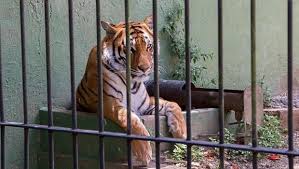The other day
I sat saying Morning Prayer – on my own, of course at the moment – and turned to
2 Thessalonians chapter 2:
for that day will not come unless the rebellion comes first and the lawless one is revealed, the one destined for destruction. He opposes and exalts himself above every so-called god or object of worship, so
that he takes his seat in the temple of God, declaring himself to be God … For
the mystery of lawlessness is already at work … The
coming of the lawless one is apparent in the working of Satan, who uses all
power, signs, lying wonders, and every kind of wicked
deception ...
Blimey, I thought, that’s a bit strong for what
the Church of England usually tells us to read, and in fact I’m not sure it
ever comes up even in the Office readings. I checked and found I should have
been reading 2 Timothy instead.
You might guess who I had in mind as I read about
the Man of Lawlessness. Now that he has been defeated – if, indeed, he has, as
this may be the bit in the horror film where you think the monster’s dead, but
what’s that heaving out of the swamp? – perhaps Mr Trump isn’t the Antichrist,
and I can revert to my previous assumption that Antichrist is not a person but
a tendency in human nature. It was a close thing, though: listening to his
devotees on the radio referring to him as a ‘saviour’, and describing his profound
faith where everyone else can see fakery and blasphemy.
Working out what they actually mean by this would
take a long time, but it’s almost completely (I think) a matter of secular
considerations dressed up in religious language, ranging from cultural-stroke-racial
identitarianism to the natural fear of being put out of work and your community
devastated by economic change. The only real influence of religion on the
(hopefully outgoing) President is that of the pastor of his childhood family church,
Norman Vincent Peale, whose 1952 book The Power of Positive Thinking was
denounced across many denominations as a mixture of psychological snake-oil and
heresy. You can see how it plays out in someone whose life is built on the
assumption that he can get away with anything. It’s the opposite of Christianity.
Now, I constantly argue for making the effort to understand the people you
disagree with. I think the West’s progressive forces and parties absolutely must
do so, and cure themselves of the idea that the best way to change anyone’s
mind is to tell them they are evil and shout at them; and that democracy involves
recognising that the people you oppose are never just going to go away, that
you can’t have any kind of final victory over them, but must continue to negotiate
and compromise and settle. But not even I can deny I feel some schadenfreude.
The President’s term ending with his lawyer having an hysterical meltdown in
front of a rusting garage door in a car park with a porn shop on one side and
burning corpses on the other seems an icon of the last four years if ever there
was one. It is blasphemy being brought down.
I still can’t see our civilisation making it beyond
the end of this century, given how fast the climate catastrophe seems to be
advancing. Perhaps the Lord has given us a reprieve. But the Apocalypse is
slow, and moves through human affairs, revealing the truth about who we are, exposing
to the terrible light of the Spirit the lies we tell ourselves, even if not
everyone can see them. At the moment there is a welcome chink of light in the
dark clouds, but every light casts a shadow.













